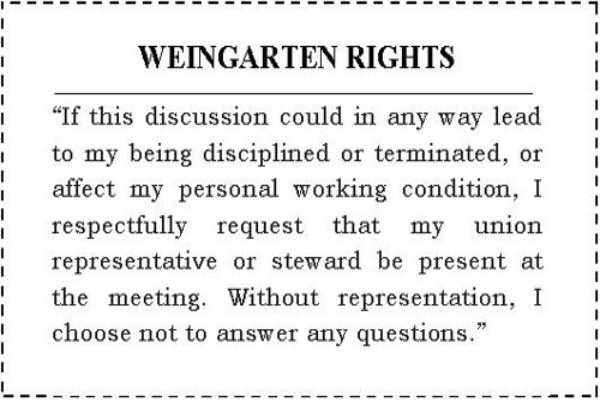Weingarten Rights
Unions should educate their members about the advantages of having a steward present at an investigatory interview. These include the ability of the steward to:
- serve as a witness to prevent a supervisor from giving a false account of the conversation;
- object to intimidation tactics or confusing questions;
- help an employee to avoid making fatal admissions;
- advise an employee, when appropriate, against denying everything, thereby giving the appearance of dishonesty and guilt;
- warn an employee against losing his or her temper;
- discourage an employee from informing on others; and
- raise extenuating factors.
Under the Supreme Court’s Weingarten decision, the following rules apply to investigatory interviews:
- The employee can request union representation before or at any time during the interview.
- When an employee asks for representation, the employer must choose from among three options:
- 1. Grant the request and delay questioning until the union representative arrives;
- 2. Deny the request and end the interview immediately; or
- 3. Give the employee a choice of:
- (a) Having the interview without representation or
- (b) Ending the interview.
- If the employer denies the request for union representation and continues the meeting, the employee can refuse to answer questions.
Weingarten rights apply only during investigatory interviews. An investigatory interview occurs when:
- Management questions an employee to obtain information; and
- The employee has a reasonable belief that discipline or other adverse consequences may result. For example, an employee questioned about an accident would be justified in fearing that she might be blamed for it. An employee questioned about poor work would have a reasonable fear of disciplinary action if he should admit to making errors.
